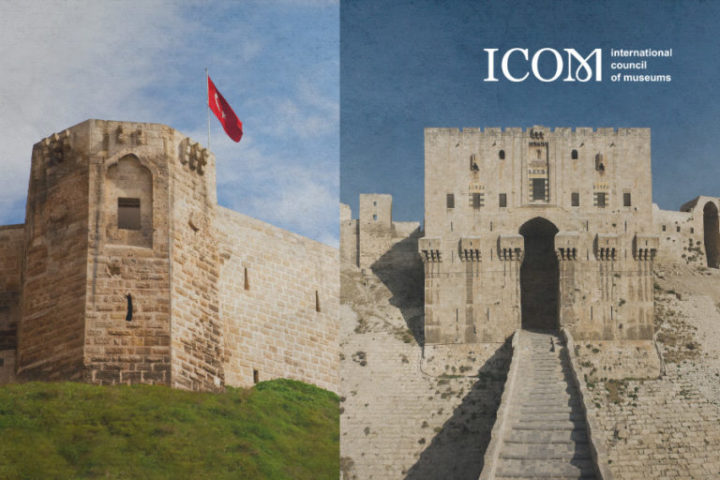The President of ICOM and the entire global ICOM network are deeply shocked by the earthquakes on Monday 6 February in the north-western Syrian Arab Republic and in the regions of central and southern Türkiye.
The two earthquakes, the first of magnitude 7.8 on early Monday morning followed by a second earthquake of 7.5 in south-eastern Turkey, have caused widespread destruction and loss of life in both countries, as reported by media.
The images shared by national and international media in the aftermath of this disaster show the extent of the destruction, but damage assessment is still ongoing. So far, more than 3,000 buildings across at least 10 Turkish cities have been confirmed destroyed and already ICOM has learnt that the UNESCO World Heritage Site – the Gaziantep Castle, dating from the second and third centuries, has been severely damaged. ICOM Secretariat and its Department for Heritage Protection are in close contact with ICOM Türkiye to ascertain and confirm any further damage to cultural heritage and museums in the region.
As a global museum organisation, and a founding Member of the Blue Shield, ICOM is ready to help respond to this disaster in coordination with its national and international committees, such as the Disaster Risk Management Committee (DRMC). ICOM has prepared tools to this affect, including chapters in the Running a Museum Handbook relating to disaster preparedness. The primary concern in the immediate aftermath of all disasters like these are the rescuing of those injured and the safeguarding of all lives. However, ICOM would also like to draw attention to the long term risks, and the threats to heritage – like risks of thefts and smuggling – that will continue after the casualties of this disaster have been prioritised and aided. In Türkiye, there is a strong solidarity amongst museums, and museum professionals too – from the affected regions and beyond – have already being reaching out to those museums in the affected cities to bring help and assistance. Aid from those areas closest to the regions affected is especially important as roads have also been damaged making travel difficult. The security of museums staff, buildings and collections will also need attention. In Syrian Arab Republic, the crisis will continue to be monitored further and ICOM would like to recall and draw to attention of the international community its Red List for Syria which can help identify threatened heritage in situations like these.
At this stage, ICOM is working in close contact with its national and regional committees to assess the needs and the organisation is ready to offer all possible support in the disaster management efforts. ICOM will do everything it can to support emergency responses for the museums affected if they request it.
